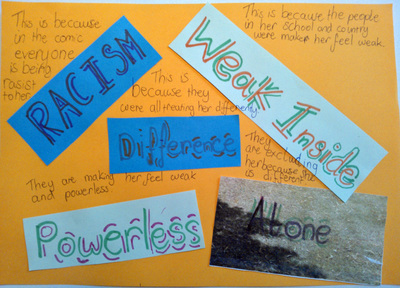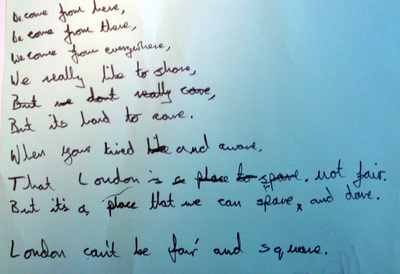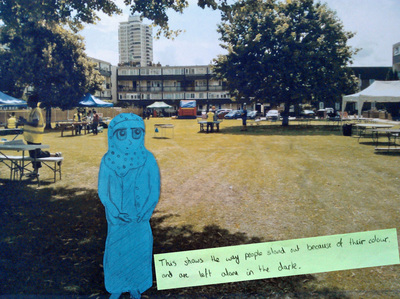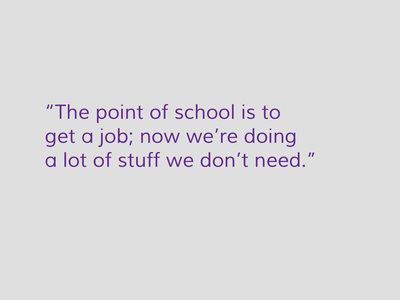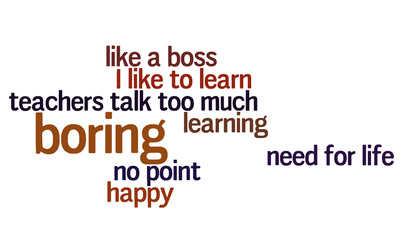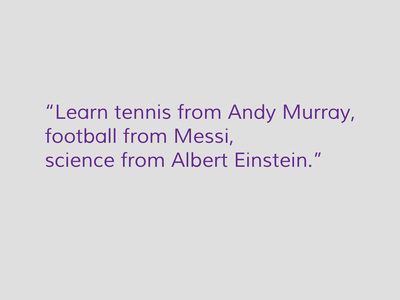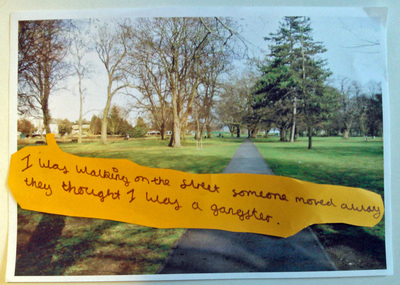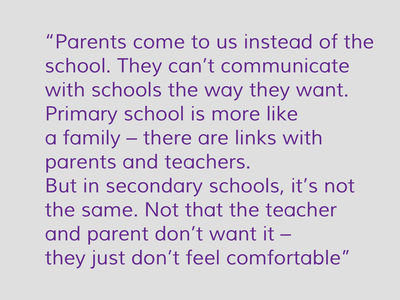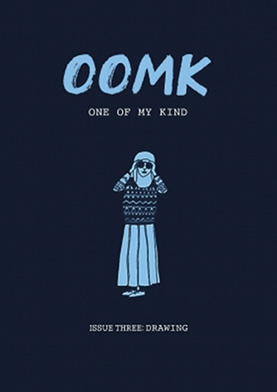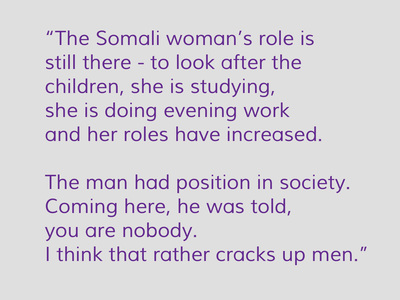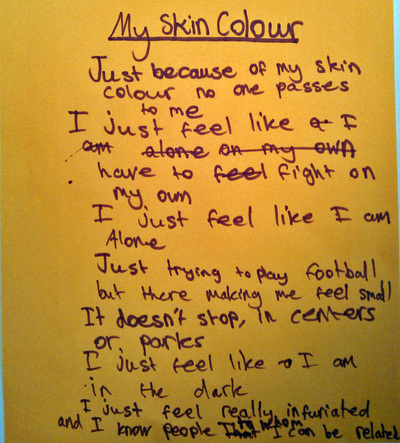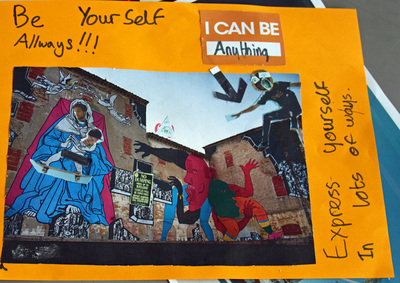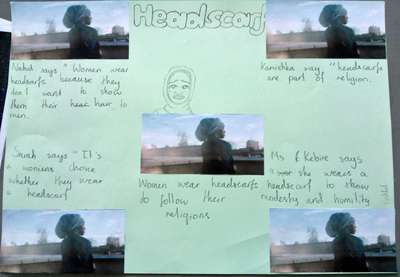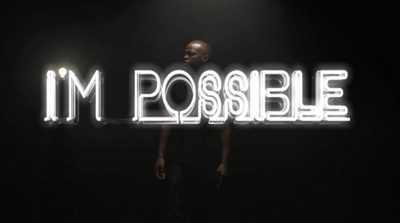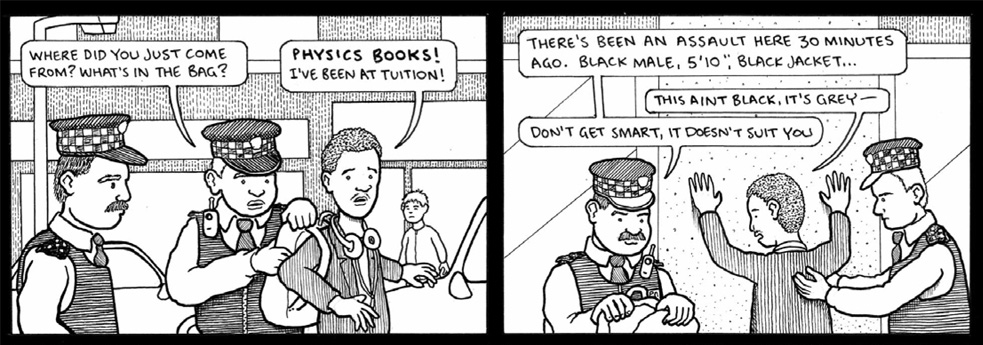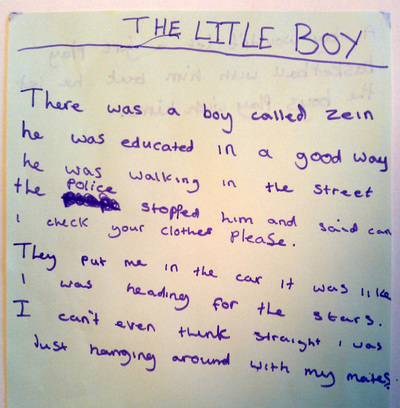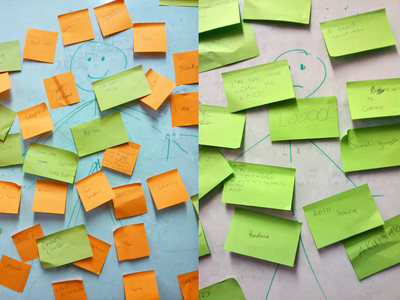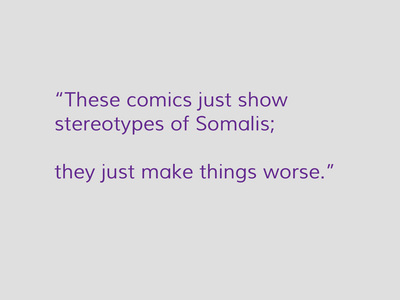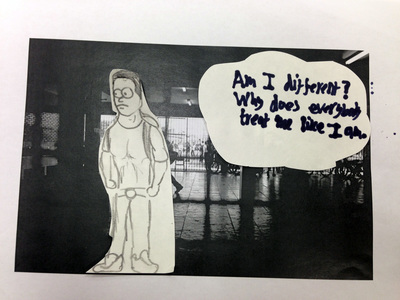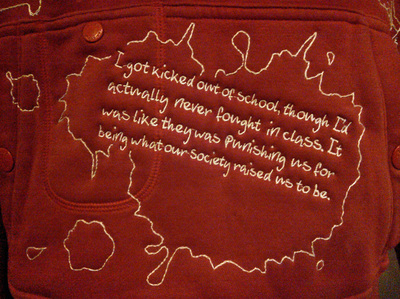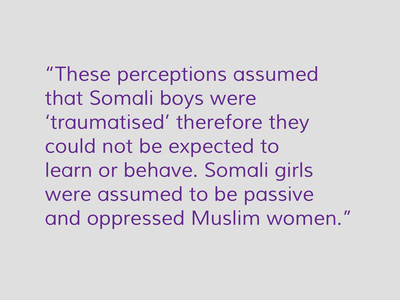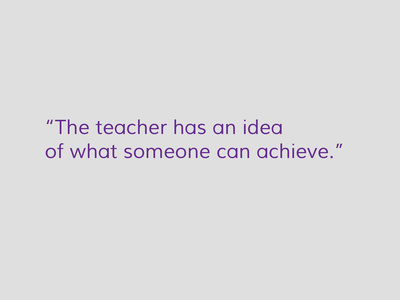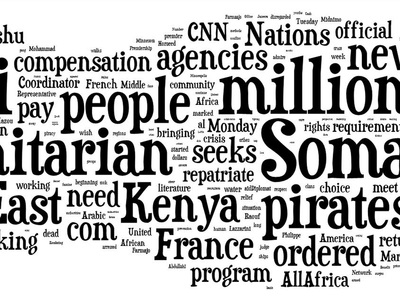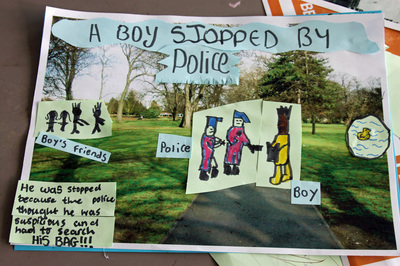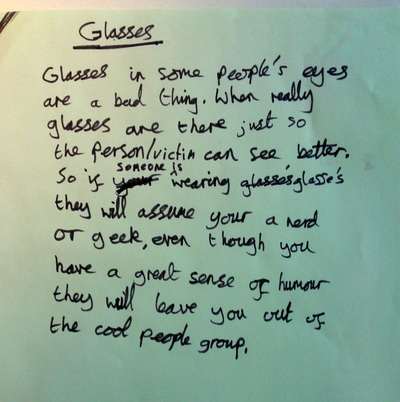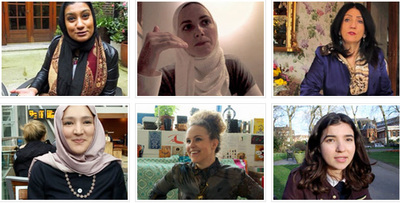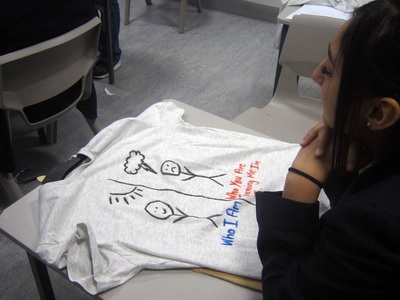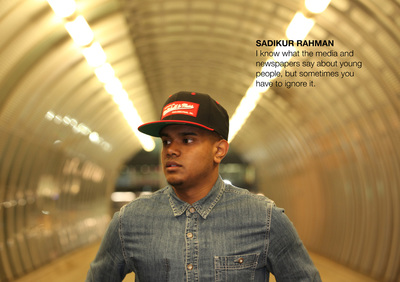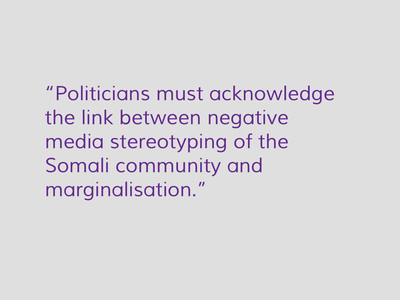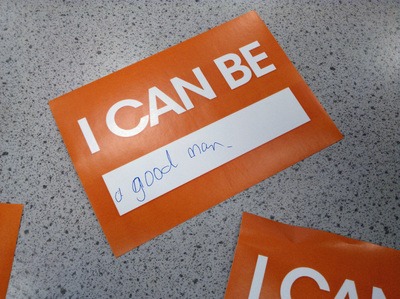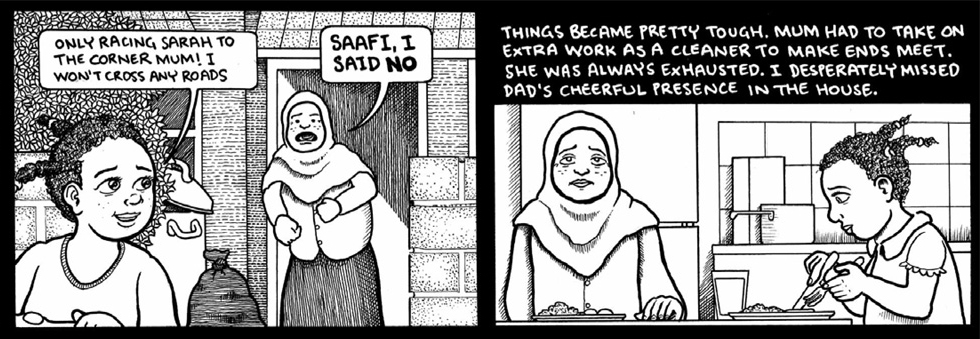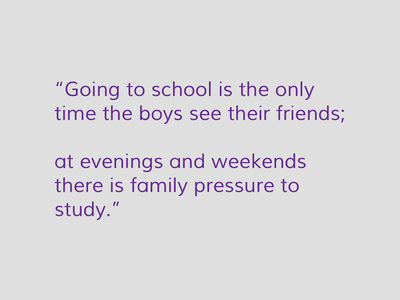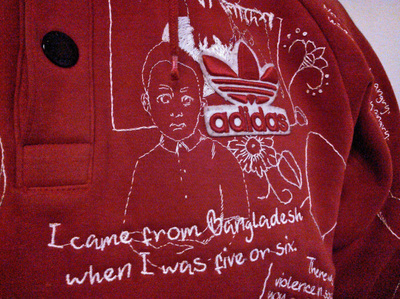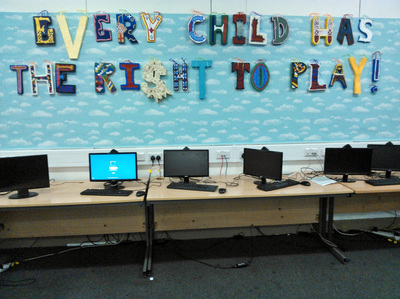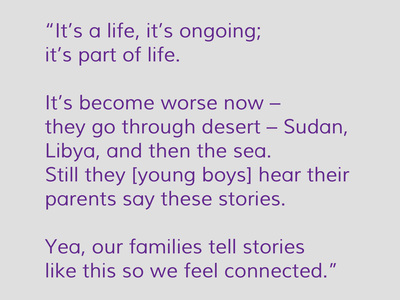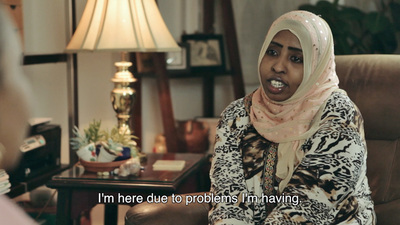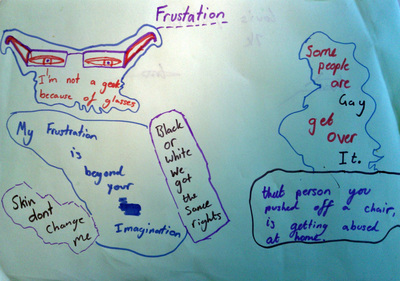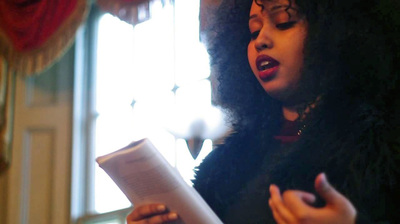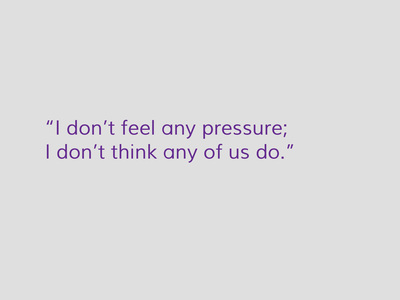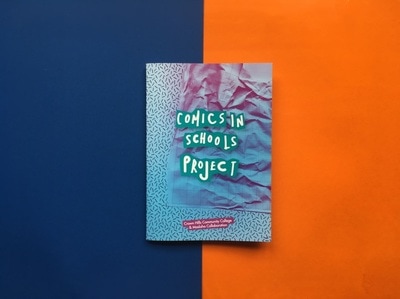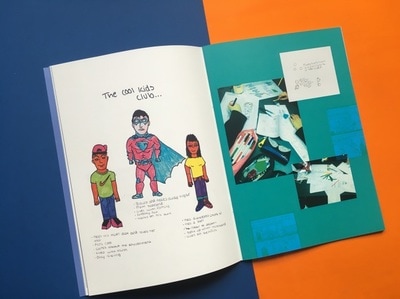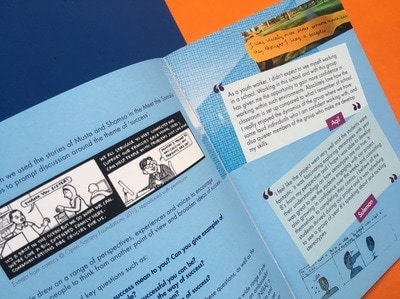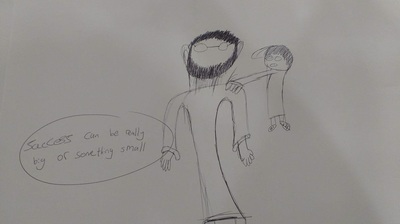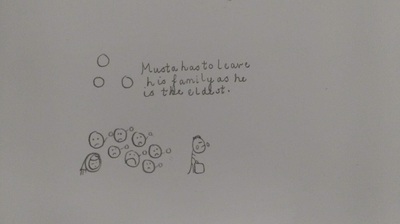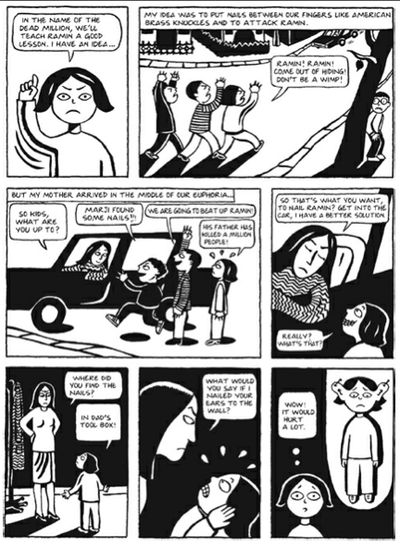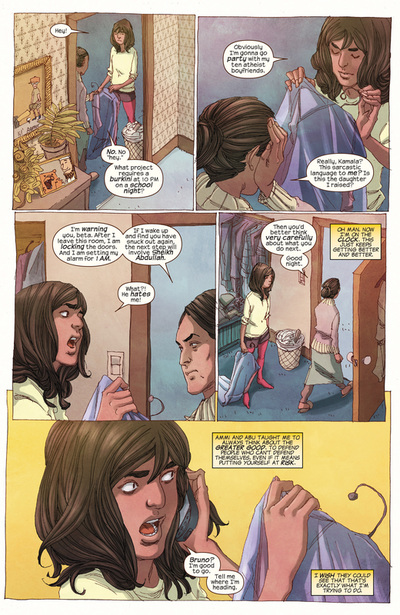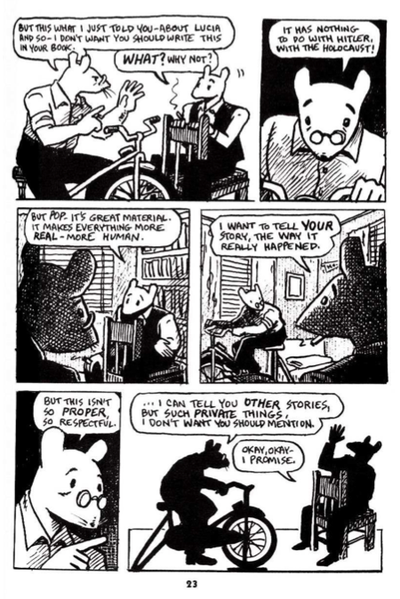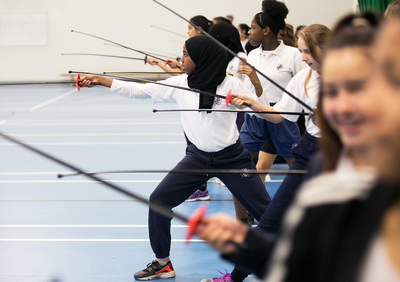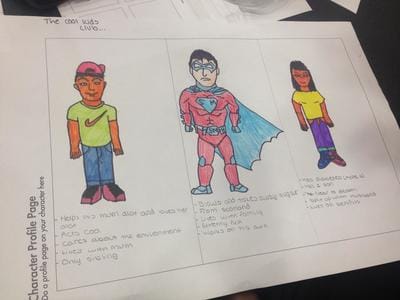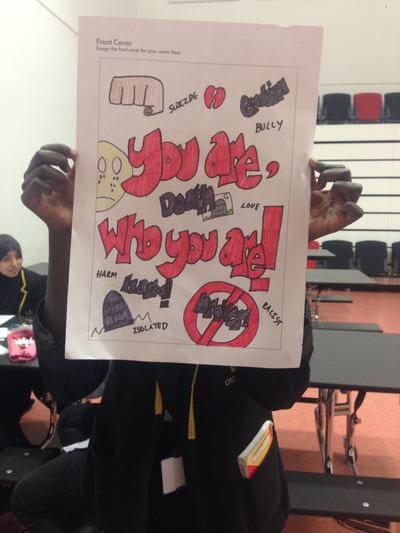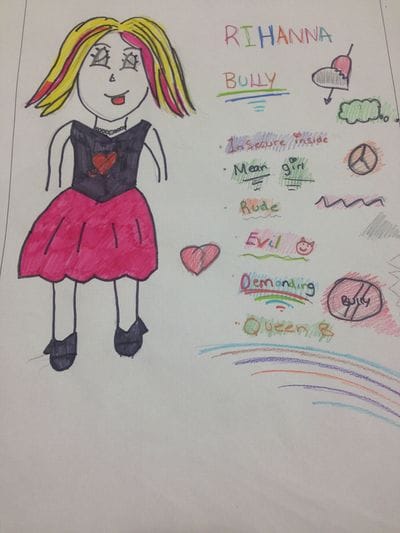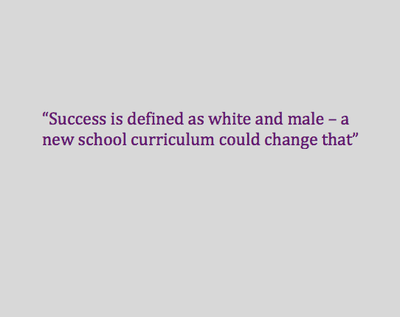Resources for the classroom
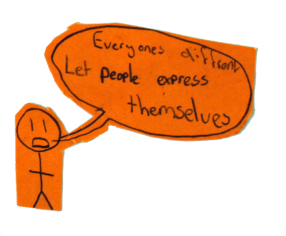
The three themes below (feeling powerless, stereotypes, under pressure) emerged as issues for young people in North London, and are also evident throughout the Meet the Somalis comics. We also explored these themes with young people in Leicester through the lens of success.
The comics prompted different responses from school pupils and communities, both positive and negative, and we attempted to capture that range within the resources. Ultimately, the comics are a useful and engaging starting point for discussion.
Explore the themes below with young people using the range of creative materials that show different perspectives, from comics, audio clips, raps, and collages, to research and quotes.
All materials are downloadable for free; links are below. We also offer school workshops; please contact us for further information.
The issues below are not black and white; they include many different - sometimes opposing - points of view, and should not be oversimplified. The materials below introduce pupils to complex and socially relevant issues in a visually-engaging way.
Bear in mind that young people's input in these activities can help inform how your school or organisation works, and where its focuses lie.
The comics prompted different responses from school pupils and communities, both positive and negative, and we attempted to capture that range within the resources. Ultimately, the comics are a useful and engaging starting point for discussion.
Explore the themes below with young people using the range of creative materials that show different perspectives, from comics, audio clips, raps, and collages, to research and quotes.
All materials are downloadable for free; links are below. We also offer school workshops; please contact us for further information.
The issues below are not black and white; they include many different - sometimes opposing - points of view, and should not be oversimplified. The materials below introduce pupils to complex and socially relevant issues in a visually-engaging way.
Bear in mind that young people's input in these activities can help inform how your school or organisation works, and where its focuses lie.
Arrows may not center when in edit mode. Once site is published, the arrow will be centered on the tab
When the site is published, this border and note will not show up.
Drag & drop your tab 1 content here
Feeling powerless
Use the story of Jamilah in Helsinki to prompt discussion around the theme of 'feeling powerless'.
> Download Jamilah's story here (document pages 29-32).
> Download Jamilah's story here (document pages 29-32).
Extract from comics © Open Society Foundations 2013, reproduced with permission
The materials below form a 'patchwork' of different perspectives on the theme of feeling powerless, from school pupils, researchers, the media, and teachers.
The following materials can be used as points of discussion, adding new and different perspectives, and to encourage young people to think from another point of view or consider aspects they may not have thought of.
Key questions
> Click here to download all materials on the theme of feeling powerless.
The materials below form a 'patchwork' of different perspectives on the theme of feeling powerless, from school pupils, researchers, the media, and teachers.
The following materials can be used as points of discussion, adding new and different perspectives, and to encourage young people to think from another point of view or consider aspects they may not have thought of.
Key questions
- What does feeling powerless mean?
- Why might somebody feel powerless?
- Give examples of feeling powerless in different situations: in school, in your local community, and globally
- What could be done to change this situation?
> Click here to download all materials on the theme of feeling powerless.
Suggested activities
- Draw a comic of a situation where you felt powerless (Note for teachers/facilitators: be aware of disclosure - your school or youth group will have a policy and nominated people who offer support for such situations)
- Hold a debate around the topic: 'School gives me the skills I need to succeed in life'
Drag & drop your tab 2 content here
Stereotypes
Use the story of Zein in London to prompt discussion around the theme of 'stereotypes'.
> Download Zein's story here (document pages 47-50).
> Download Zein's story here (document pages 47-50).
Extract from comics © Open Society Foundations 2013, reproduced with permission
The materials below form a 'patchwork' of different perspectives on the theme of stereotypes, from school pupils, researchers, the media, and teachers.
The following materials can be used as points of discussion, adding new and different perspectives, and to encourage young people to think from another point of view or consider aspects they may not have thought of.
Key questions
> Click here to download all materials on the theme of stereotypes.
The materials below form a 'patchwork' of different perspectives on the theme of stereotypes, from school pupils, researchers, the media, and teachers.
The following materials can be used as points of discussion, adding new and different perspectives, and to encourage young people to think from another point of view or consider aspects they may not have thought of.
Key questions
- Who stereotypes who, and as what? Give examples from everyday life
- Are stereotypes fixed or do they change?
- What can influence a stereotype? Why do they exist?
- Whose responsibility is it to tackle stereotypes, and how should this be done?
> Click here to download all materials on the theme of stereotypes.
Suggested activities
- Create a stick-person and add notes for how you describe yourself. Create a second stick-person and add notes for how you think others see you. Discuss the difference between the two (individual or group exercise). In the exercise we ran, not one pupil described themselves as 'Somali.'
- Brainstorm all the stereotypes you can think of - use this image to start you off
- What happens next? Draw the ending for the Racism Doesn't Rule comic (created by a pupil in North London)
Drag & drop your tab 3 content here
Under pressure
Use the story of Saafi in London to prompt discussion around the theme of 'feeling under pressure'.
> Download Saafi's story here (document pages 43-46).
> Download Saafi's story here (document pages 43-46).
Extract from comics © Open Society Foundations 2013, reproduced with permission
The materials below form a 'patchwork' of different perspectives on the theme of feeling under pressure, from school pupils, researchers, the media, and teachers.
The following materials can be used as points of discussion, adding new and different perspectives, and to encourage young people to think from another point of view or consider aspects they may not have thought of.
Key questions
> Click here to download all materials on the theme of feeling under pressure.
The materials below form a 'patchwork' of different perspectives on the theme of feeling under pressure, from school pupils, researchers, the media, and teachers.
The following materials can be used as points of discussion, adding new and different perspectives, and to encourage young people to think from another point of view or consider aspects they may not have thought of.
Key questions
- What sorts of pressure do you think young people can experience, and from where?
- How can this affect young people?
- How do you think young people's voices and opinions can be taken into consideration?
> Click here to download all materials on the theme of feeling under pressure.
Suggested activities
- Put yourself in Saafi's shoes and write a poem or rap about how she feels
- Make a collage of your ideal school: what it looks like, what you learn and how, who learns and who teaches
Drag & drop your tab 4 content here
Success
Use the stories of Musta and Shamso to prompt discussion around the theme of 'success'.
> Download Musta and Shamso's stories here.
> Download Musta and Shamso's stories here.
Extract from comics © Open Society Foundations 2013, reproduced with permission
The materials and images below form a 'patchwork' of different perspectives on the theme of success from our workshops in Leicester. This will be updated as the project unfolds.
The following materials can be used as points of discussion, adding new and different perspectives, and to encourage young people to think from another point of view or consider aspects they may not have thought of.
The materials and images below form a 'patchwork' of different perspectives on the theme of success from our workshops in Leicester. This will be updated as the project unfolds.
The following materials can be used as points of discussion, adding new and different perspectives, and to encourage young people to think from another point of view or consider aspects they may not have thought of.
Images from the final comic created at Crown Hills Community College with artist Soofiya Andry from Soofiya's website
Key questions
- What does success mean to you? Can you give examples of successful people?
- What affects how successful you can be?
- What barriers stand in the way of success? How can you overcome them?
- How can we broaden our idea of success?
Suggested activities
- Draw an image of yourself as a successful person, in the way YOU imagine success. Draw another image of yourself as a successful person, but in the way your PARENTS imagine success. And the same for: SCHOOL, TEACHER, SOCIETY, GOVERNMENT. Are there similarities and differences? Why?
- Hold a debate around the topic: 'You can't be successful unless you have money'.
- Research one of your heroes or favourite celebrities - someone who you consider to be successful. Make a timeline of important events in their lives. Is it all positive? Draw a comic book based on these events.
Drag & drop content here


